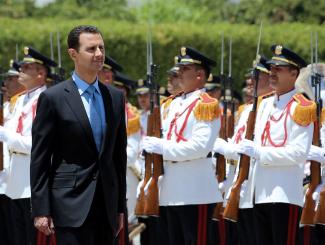Media
Ambivalent trends

In Egypt in 2011, the authoritarian government of President Hosni Mubarak experienced a digital tsunami – an uprising on the streets and in digital spheres. People organised protests through social media, much quicker than the police or the secret service could react. The effect was overwhelming: the Arab spring swept away the president, and the people of Egypt claimed their freedom.
That was then. The security apparatus learned quickly from its mistakes. Today, the Egyptian government, headed by Abdel Fattah al-Sisi, a former general, has all surveillance technology it needs to control and monitor the Internet. Any new wave of protest is likely to be detected fast.
Governments have many ways to obtain information. They rely on spy programmes and exchange information among one another. Companies that specialise in security technology sell them so-called “lawful intercept solutions”, which are basically surveillance technology. There are rules that regulate arms exports to authoritarian regimes, but the transfer of technology that serves supposedly civilian security and surveillance is mostly unregulated, even though it is problematic too, warns Marc von Boemcken from the Bonn International Center for Conversion (BICC). In his view, helping authoritarian governments in North Africa and the Middle East to tap phones is “as dangerous as selling assault rifles”.
Boemcken says that international security firms, but also large telecommunications groups as Nokia, Siemens or Ericsson, have sold spyware to countries like Syria without breaking any laws. It is obvious, however, that Syria’s brutal Assad regime was never interested in human rights and was always prepared to resort to violence to stay in power.
What a secret service cannot buy legally, moreover, it can acquire illegally, warns Menso Heus from the Internet Protection Lab, a Dutch non-governmental organisation. “The cyber black market is more profitable than the illegal drug trade,” he stated during a workshop on surveillance issues at the Global Media Forum, which was hosted by Deutsche Welle in Bonn in June. According to Heus, “human rights are violated” when privacy is violated. He insists that there must not only be rules on the international trade in surveillance technology; the rules must be enforced too.
There is obviously a need to protect data and communication from excessive and oppressive surveillance. The irony, however, is that transparency goes both ways. Free exchange of information is essential for democracy to work – and it will always give authorities insights into what people think.
Open data is indispensable for public participation in policy making, as Tchadjei Ouro-Longa knows. He is the head of communications for the Togolese city of Sokodé, and his municipal government has teamed up with a local radio station for regular programmes in which local leaders discuss policies with listeners who are invited to intervene by telephone.
The need to build trust
Ouro-Longa says he is working on new formats to make use of up-to-date information technology. This summer, the city will start inviting people to send text messages to the mayor’s office in an innovative approach to letting citizens monitor the public administration. It will also give the administration a clearer picture of what individual citizens think, which is no trivial matter in a country with a long history of authoritarian rule such as Togo. Observers know that building trust is just as important as the technology needed to reach out to citizens in a setting like this.
According to Ouro-Longa, there is no doubt that local authorities must cooperate with the media to achieve as much civic participation as possible. Journalists, however, are not always comfortable with authorities that use new ways of providing transparency. Ute Lange of Engagement Global says that is the case in Bonn, where the local government is introducing participatory budgeting, an approach first taken in Brazil (see D+C/E+Z 2013/03, p. 119 ff.). According to Lange, the local newspapers are belittling Bonn’s attempts to involve its citizens in budget decisions.
Michelle Ruesch of the Zebralog consultancy agrees. She advises the city of Bonn on participatory budgeting. She reports that some 12,000 citizens have filed budget proposals on a website. Such active involvement of more than five percent of the electorate is appreciated by the local government, but not the local media. Journalists have argued that the feedback is unimpressive. Liat Schlesinger, a journalist from Israel, is not surprised that some of her colleagues do not appreciate authorities’ innovative ways of distributing information and interacting with citizens. The reason is that the new approaches considerably reduce their traditional privileges of uncovering secrets and voicing concerns. She adds, however, that journalists’ fears of becoming irrelevant are exaggerated. The reason is that even if data are made available, most citizens are not able to interpret them. Her advice is that professional journalists should focus on the indispensable work of analysing data and welcome the fact that it takes less effort to collect information.
Communication and information technology is changing the ways public discourse is organised. There are serious challenges and important opportunities. Politicians are increasingly becoming aware of the ambivalences. Frank-Walter Steinmeier, Germany’s foreign minister, is one of them. He told the Global Media Forum: “Digital access and freedom on the Internet are global goods, but we need to develop global rules.”
Sheila Mysorekar and Hans Dembowski











